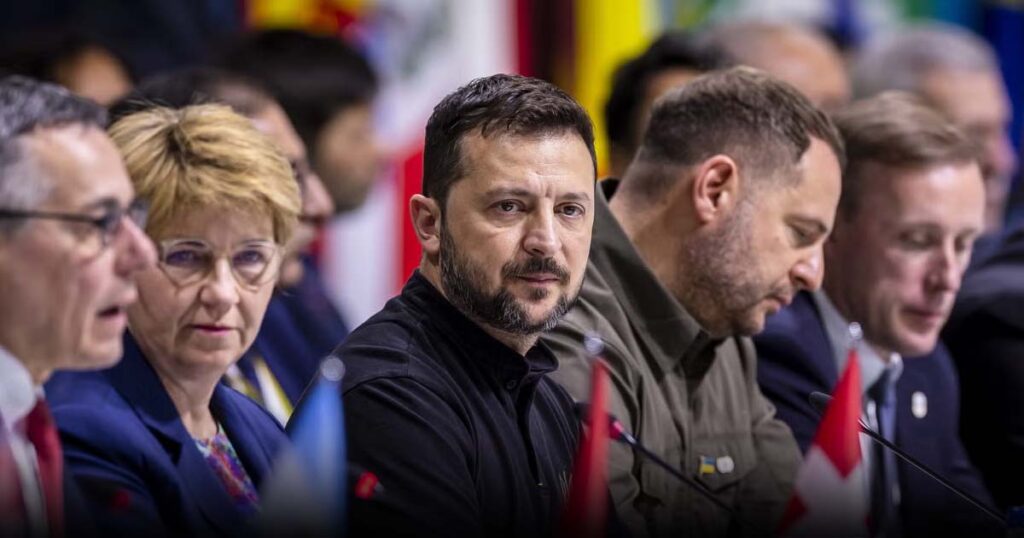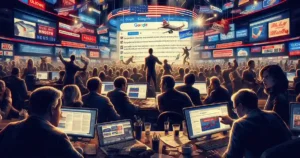The ongoing conflict between Russia and Ukraine has entered a critical phase as discussions about a potential peace deal intensify. With Russia consolidating its territorial positions and U.S. President-elect Donald Trump expressing a willingness to negotiate, the international community is cautiously optimistic about a resolution. However, the path to peace remains fraught with challenges, reflecting the complexities of geopolitics, national sovereignty, and global alliances.

Background: A War with Global Reverberations
The Russia-Ukraine conflict began in 2014 with Russia’s annexation of Crimea, followed by the eruption of hostilities in Eastern Ukraine. The war has claimed thousands of lives, displaced millions, and reshaped European security dynamics. Recent months have seen escalations, with Russia strengthening its control over occupied territories, while Ukraine continues to resist with international backing.
Key Developments Driving Peace Discussions
1. Russia’s Consolidation of Position
Russia has solidified its control over key regions, particularly in Eastern Ukraine. This includes:
- Reinforced military presence in Donetsk and Luhansk.
- Efforts to integrate occupied territories into Russia’s economic and political systems.
- Propaganda campaigns to gain local support, though resistance remains high.
Moscow’s strategic calculus suggests it may now seek a diplomatic settlement to cement these gains and avoid further international sanctions.
2. U.S. President-Elect Donald Trump’s Role
Donald Trump’s ascent to the presidency signals a potential shift in U.S. foreign policy. Known for advocating dialogue with Russia, Trump has expressed an interest in brokering a peace deal, emphasizing diplomacy over confrontation.
- Trump’s stated intent to negotiate with Russian President Vladimir Putin could open new avenues for dialogue.
- Questions arise about the U.S.’s continued military and financial support for Ukraine under his administration.
While Trump’s approach could ease tensions, it also risks alienating NATO allies concerned about Russian aggression.
3. European and Ukrainian Stakes
- Europe: EU nations, particularly Germany and France, have played a central role in peace efforts through the Minsk agreements. However, Europe’s unity on Ukraine is tested by economic pressures and differing national priorities.
- Ukraine: Ukrainian President Volodymyr Zelensky faces a delicate balancing act. While Kyiv seeks a resolution, it refuses to cede sovereignty or territorial integrity, making negotiations with Russia particularly fraught.
4. International Diplomacy in Action
The United Nations, OSCE, and other multilateral organizations are intensifying efforts to mediate peace. Key areas of focus include:
- Ceasefire agreements.
- Humanitarian aid for affected regions.
- Frameworks for territorial disputes.
Challenges to a Peace Deal
Despite the momentum, significant obstacles remain:
- Territorial Disputes: Ukraine demands the return of Crimea and the Donbas, while Russia views these as non-negotiable.
- Trust Deficit: Both sides harbor deep mistrust, with numerous ceasefire violations reported in the past.
- Global Stakes: NATO’s stance, U.S.-Russia dynamics, and China’s growing influence add layers of complexity to the negotiations.
Potential Outcomes of Negotiations
1. Compromise and Regional Autonomy
A possible outcome could involve granting greater autonomy to the Donetsk and Luhansk regions under Ukrainian sovereignty, a concept partially outlined in the Minsk agreements. However, implementing this would require concessions from both sides.
2. Frozen Conflict
Another scenario is a “frozen conflict,” where active hostilities cease but a formal peace deal remains elusive. This would mirror other unresolved territorial disputes and maintain tension in the region.
3. Full Resolution or Escalation
While a comprehensive peace deal is the ultimate goal, failure to reach an agreement could lead to renewed escalations, deepening the humanitarian crisis.
Global Implications
1. For the U.S.
Trump’s handling of this crisis will test his diplomatic skills and shape his foreign policy legacy. A successful resolution could boost his standing, while failure risks eroding U.S. credibility.
2. For Europe
The conflict’s resolution would stabilize Eastern Europe, ease the refugee crisis, and allow the EU to focus on other pressing issues, such as economic recovery and climate change.
3. For the World
The Russia-Ukraine conflict serves as a litmus test for international law and the ability of global institutions to resolve disputes. A peaceful resolution would set a precedent for diplomacy over war.
Conclusion: A Fragile Hope for Peace
The intensifying discussions around a Russia-Ukraine peace deal represent a pivotal moment in modern geopolitics. With Russia consolidating its position and the U.S. signaling a shift under President-elect Trump, the ingredients for dialogue are present, but the outcome is far from certain.
For Ukraine, the stakes are existential; for Russia, it’s about preserving strategic gains; and for the world, it’s a reminder of the fragile balance that sustains global peace. The road ahead will require extraordinary leadership, trust-building, and a commitment to justice and sovereignty.
As negotiations unfold, the global community watches closely, hopeful that diplomacy can triumph over division, and peace can return to a region long scarred by conflict.






